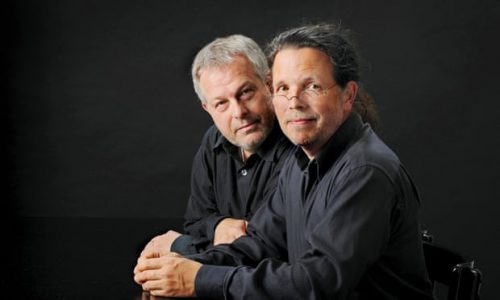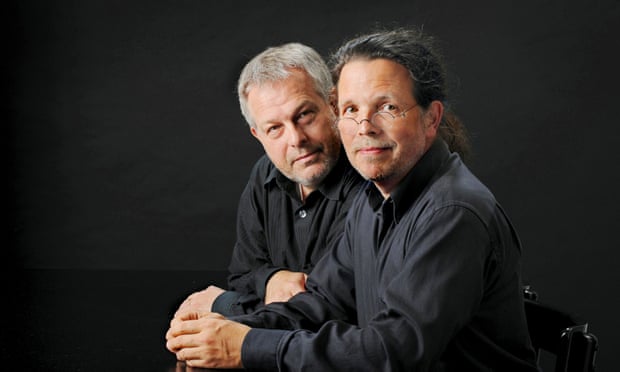
 United Kingdom Oxford Lieder Festival [4] – Beethoven, Schubert: Christoph Prégardien (tenor) and Michael Gees (piano); Harriet Burns (soprano) and Ian Tindale (piano). 17.10.2020 performance from Holywell Music Room, Oxford, reviewed as a live stream. (CP)
United Kingdom Oxford Lieder Festival [4] – Beethoven, Schubert: Christoph Prégardien (tenor) and Michael Gees (piano); Harriet Burns (soprano) and Ian Tindale (piano). 17.10.2020 performance from Holywell Music Room, Oxford, reviewed as a live stream. (CP)

Schubert – ‘Verklärung’, D59; Ellens Gesang II (D838) from Sieben Gesänge aus Walter Scotts ‘Fräulein vom See’; ‘Die Männer sind méchant!’ from Vier Refrainlieder; ‘Im Walde (Waldesnacht)’, D708; ‘Dass sie hier gewesen’, D775; ‘Die Bürgschaft’, D246
Wolf – ‘Anakreons Grab’ (No.29) from Goethe-Lieder; ‘In dem Schatten meiner Locken’ (No.12) from Spanisches Liederbuch: Weltliche Lieder
Beethoven – ‘Adelaide’, Op.46
Schubert – Schwanengesang
This final recital of the hugely successful Oxford Lieder Festival brought the remarkable Michael Gees to play for a regular favourite, tenor Christoph Prégardien.
It all began with Emerging Artists, soprano Harriet Burns and pianist Ian Tindale, presenting five songs by Schubert and Wolf on the theme of rest, death, and the night. Burns’s interpretation of Schubert’s ‘Verklärung’ was firmly sung with a bright, smiling warmth to recreate Schubert’s outbursts of delight. In a previous appearance at the Festival in 2016 she was as part of the Mastercourse, and since then she has made her Wigmore Hall debut in 2018 and graduated with a Distinction from the Guildhall Opera School. Her delivery of Schubert’s ‘Die Männer sind méchant’ was full of aching tenderness with just a hint of naughtiness, which Schubert would have applauded.
Christoph Prégardien opted to begin his performance with Beethoven’s ‘Adelaide’, the search for a friend wandering in a spring garden. Prégardien has an exceptional presence, a silvery, sentient tenor voice, polished and full of wistful tenderness. He has enjoyed a long, creative partnership with Michael Gees who thrills to Beethoven’s ever-varied piano writing.
We were warned of Prégardien’s plan to tackle the songs of Schubert’s Schwanengesang in a different order and with different insights and interpolations. He has every right to do this as the original grouping was a commercial decision of Schubert’s enterprising publisher, Tobias Haslinger. Prégardien’s chosen order began with ‘Abschied’, traditionally the last of the Ludwig Rellstab songs, usually number six in the order. ‘Ständchen’ followed, essentially a love serenade in the minor key. Gees ploughed through the pile of glued-together photocopies of sheet music, thoroughly enjoying the vitality and wistful tenderness of Schubert’s writing. Prégardien’s exquisite interpretation matched the Gees enjoyment.
The fourteen songs are by the three poets, Rellstab, Heinrich Heine and Johann Gabriel Seidl – Seidl providing the words for the last one in the traditional format, ‘Die Taubenpost’ – are frequently considered an ‘uncertain cycle’ as the work is quite simply a collection of songs. ‘Liebesbotschaft’ summons up memories of Die schöne Müllerin, an evocation of the babbling brook, sung movingly with just the right amount of discretion.
‘Im Walde (Waldesnacht)’ is one of several poems by Friedrich von Schlegel developed by Schubert. Set in the forest, the song is an impetuous, masterful song setting, with dark murmurings of the forest which Prégardien delighted in exposing. His use of the language was so easy to understand.
Prégardien demonstrated his wonderful control in ‘In der Ferne’, with ‘Frühlingssehnsucht’ requiring Gees to maintain a perpetual motion sensation at the piano. At this point the artists took a welcome break before returning with Frederick von Schiller’s words in the cliff hanger ‘Die Bürgschaft’’, not usually one of the songs performed in Schwanengesang.
‘Das Fischermädchen’, the first of six songs in this performance from poems from Heinrich Heine took us through the Prégardien new order of songs from number ten back to number eight – ‘Der Atlas’ via ‘Am Meer’, ‘Die Stadt’, ‘Der Doppelgänger’ and ‘Ihr Bild’. The devastating, dramatic close of ‘Der Atlas’ has echoes of the first movement of Beethoven’s Piano Sonata No.32 in C minor, Op.111. Gees supported Prégardien furiously as the tenor reflected the stormy and impassioned nature of hallucinating love. Fiery material brilliantly delivered with Gees showing remarkable fecund melodic invention.
Inevitably, there was a song missing! This would prove to be a fine encore – ‘Die Taubenpast’ using a poem by Johann Gabriel Seidl. Prégardien’s exquisite interpretations will live long in the memory after the Festival. As Artistic Director, Sholto Kynoch, noted in his summary, ‘This year has been a vertical line learning occasion, an attempt to be as close to the real thing as we could’. Next year, the twentieth anniversary will be back with live audiences, we all fervently hope. A remarkable achievement ends: full marks to those who took the financial risk to organise the Festival.
Clive Peacock
